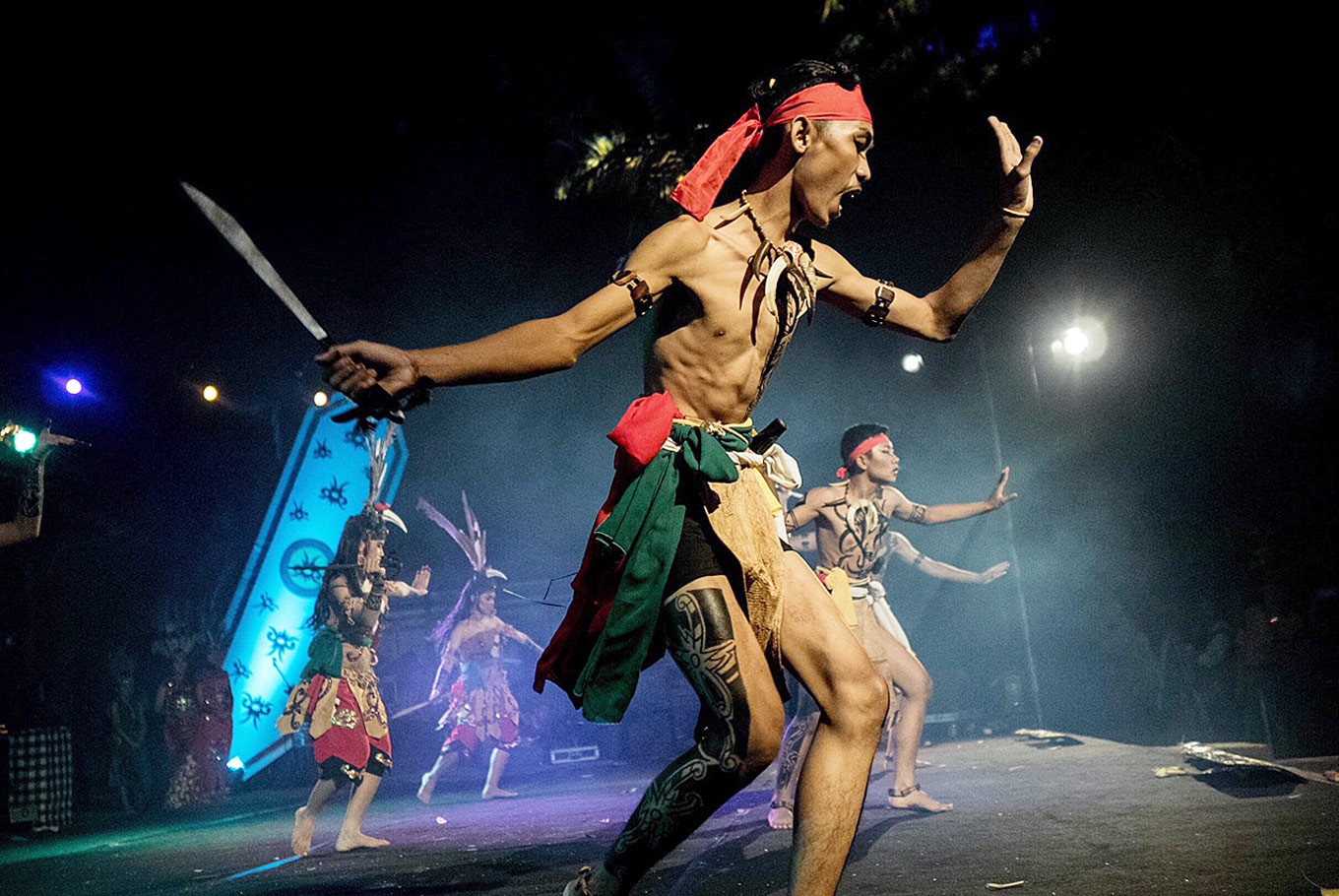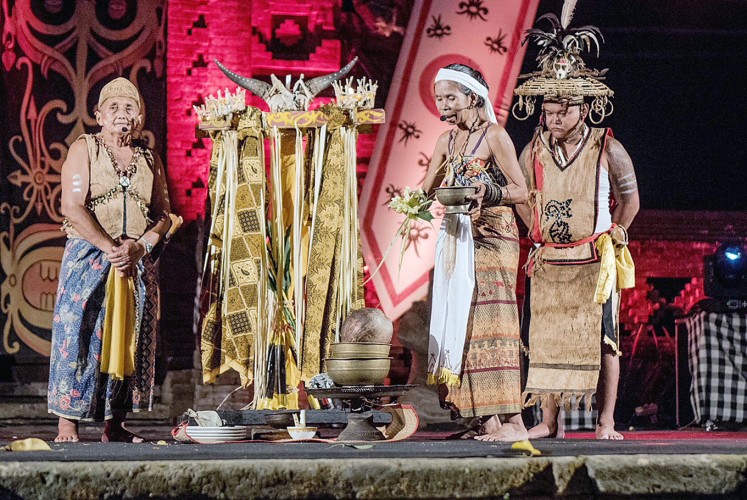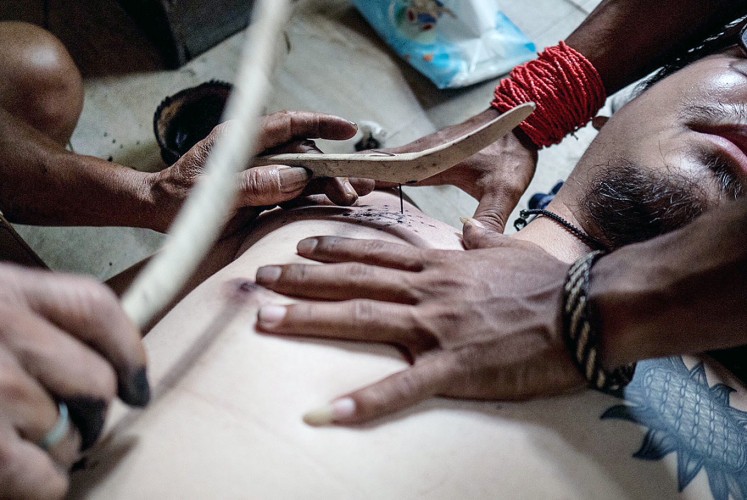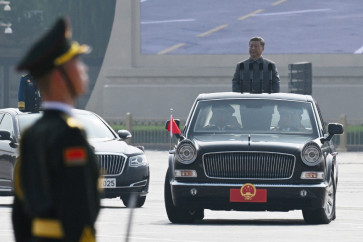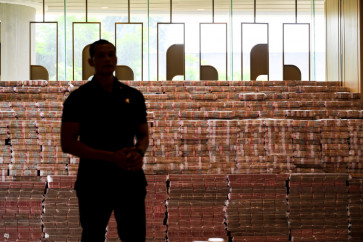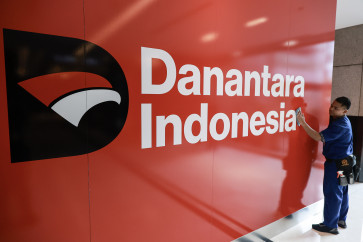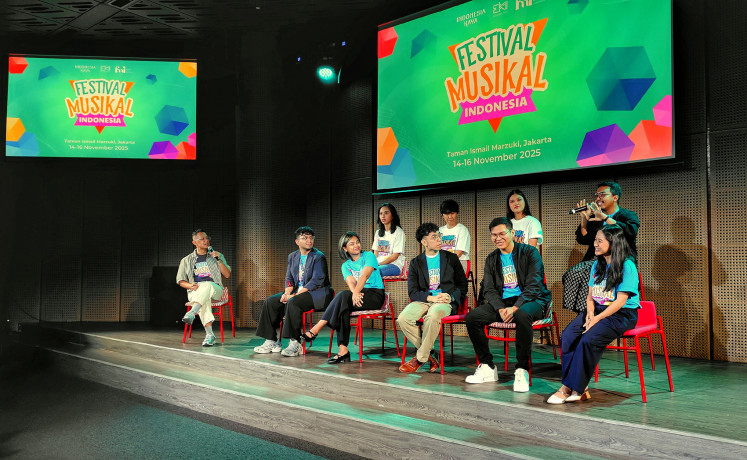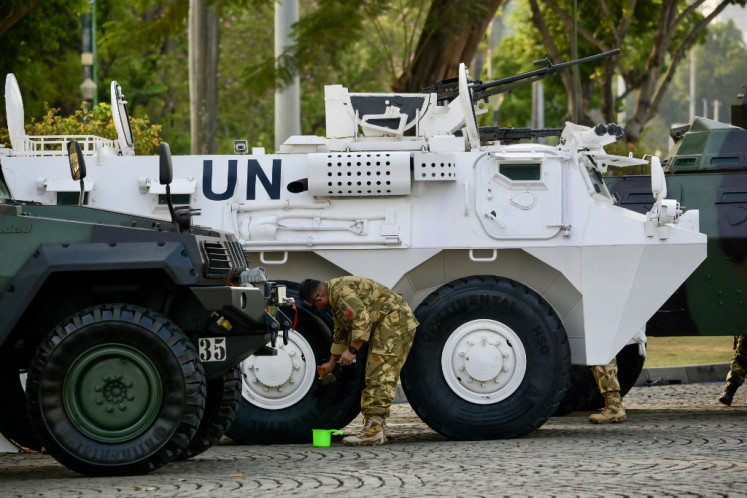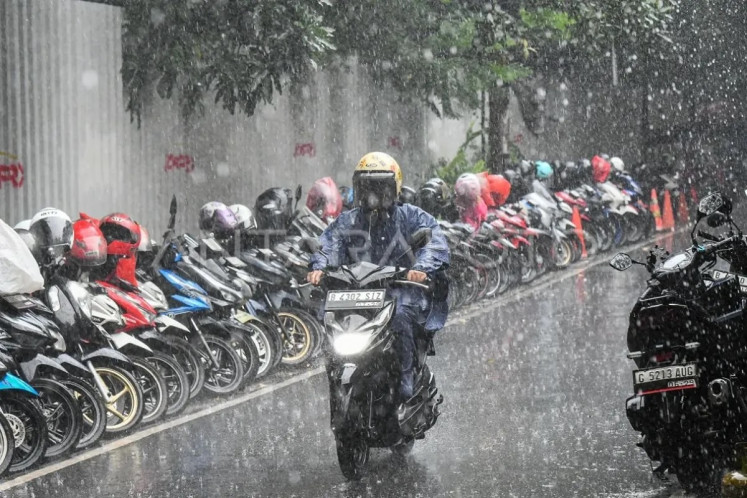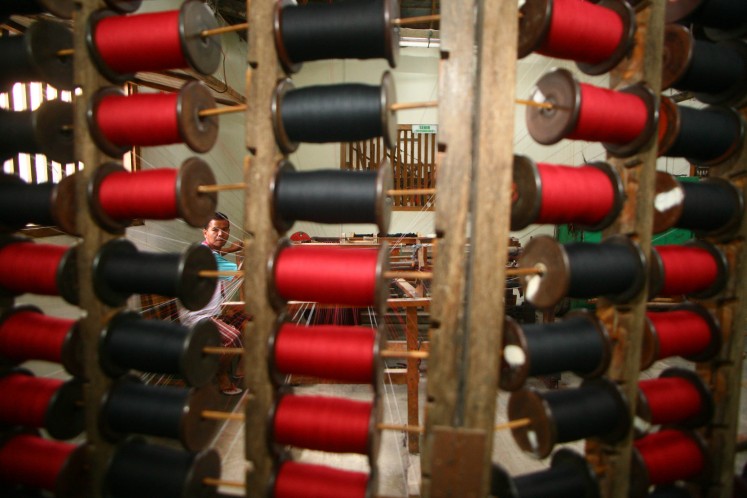Popular Reads
Top Results
Can't find what you're looking for?
View all search resultsPopular Reads
Top Results
Can't find what you're looking for?
View all search resultsIndigenous Celebration gives voice to the 'displaced'
The inaugural festival brings indigenous communities from Indonesia and beyond to share their struggles and forge a united front.
Change text size
Gift Premium Articles
to Anyone
I
mmediately after a vivacious musical performance played on jegog bamboo instruments by a troupe from western Bali, a female native of Nagaland, the mountainous tribal region in northeast India, entered the stage.
She summed up the plight of not only the 16 tribes that presently inhabit Nagaland, but most indigenous communities across the globe. It was a narrative of marginalization and persecution, of an asymmetrical struggle that pits native groups against the interests of major corporations, and of the lack of interest from their own government.
“Long before I knew the meaning of the word ‘displaced’ my life had been displaced,” Anungla said.
A writer and researcher who travelled across Nagaland to compile the traditional poems and folklore of her people, Anungla spoke eloquently about the cultural oppression and marginalization the Naga people have experienced for centuries.
She recounted the story of a 100-year-old lady, who during her childhood was berated by Christian missionaries for having her face marked with her clan tattoo. She also told her own personal story of being prohibited to speak in her native tongue by the nuns who ran her school.
Later on, she read a poem penned in her native language. Strange as it might sound, most of the audience sitting in front of the gorgeous stage in Ubud’s Agung Rai Museum of Art (ARMA) could relate to the sense of longing evoked by it.
The narrative put forward by Anungla was one of the central themes of Indigenous Celebration, a three-day gathering of indigenous communities from Indonesia, Australia, New Zealand, Malaysia and India.
Blessing: Elders of the Dayak Maanyan tribe perform a ritual at the opening of the festival. (JP/Anggara Mahendra)As many as 200 artists and performers from 32 indigenous communities participated in the inaugural festival, held from May 11 to 13, featuring art and oral tradition performances, art collaborations, educational sessions and scores of workshops — ranging from dancing and singing to weaving and tattoo making.
The inaugural gathering was the brainchild of David Metcalf and Emmanuela Dewi Shinta. Metcalf is a New Zealand-born Bali-based professional photographer and passionate activist for the preservation and promotion of indigenous communities’ culture and way of life. His passion has earned him the moniker “Dayak Dave”.
Born a member of Kalimantan’s Dayak Maanyan tribe, Shinta is the founder of Ranu Welum (Living Water), a foundation based in Palangkaraya, Central Kalimantan. It focuses on the empowerment of indigenous communities through media advocacy, youth education and activism programs.
It has organized a series of movie-making workshops to enable indigenous youths to visually narrate the story of their respective tribes as well as mobilize them to mitigate the impacts of forest fire and haze. Presently, Ranu Welum is working with more than 20 indigenous groups in Kalimantan.
It was not an easy feat to organize a festival involving participants from some of the remotest regions in the archipelago, a large number of whom have never traveled outside their village and do not have the necessary ID required by airlines. Furthermore, there was the huge financial challenge.
“I had very little financial support apart from one major sponsor: the New Zealand Embassy, which was very supportive right from the start. There was no financial support from the Indonesian government at all, neither at the national or local level,” he added.
In the end, they pulled it off and all those difficulties melted into the background when Metcalf and Shinta saw how the celebration had brought a new understanding to the participants.
Shinta recalled how the third night, when groups from different tribes and countries presented their collaborative performances, had truly touched her heart.
“Yes, we are different, but we are not meant to be divided. In the light of ongoing developments here in our country — the rising tide of religious radicalism and racism — witnessing how these different groups of indigenous people sat together and discussed the best way to present a collaborative performance was truly refreshing,” Shinta said.
“It is also a testament to what we can achieve if we are ready to accept and embrace each other,”
The new understanding and sense of unity gained by the participating indigenous communities through the festival will strengthen them in dealing with the ongoing threats.
Those threats, Metcalf pointed out, range from land rights to cultural identity and preservation.
“Destruction of land, pollution of rivers, and some communities being forced by religion to forget the old ways. This makes life very confusing for the younger generation, and for many it is a question of survival. They need support.”
That is precisely what the festival was all about. Its objectives, Shinta stressed, are simple: to connect and unite indigenous communities.
“We share the same struggles but at the same time we also share the same strength. This is the time for Indonesia and the world to give space for and listen to indigenous people, to be aware of both our beauty and our struggles,”
On the stage, Anungla once again delivered a poignant message, which reminded the audience that the struggle against displacement, cultural and otherwise, is a universal one.
“All of us have been displaced in one way or another at any given point in time."

